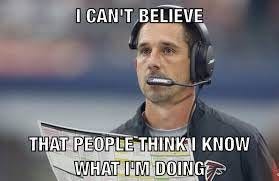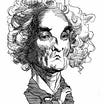I have processed my grief from the 49ers losing another Super Bowl. But my anger towards Kyle Shanahan is red hot. He has learned nothing over the years, and a devastating loss in the NFC championship or Super Bowl next year is likely. But in his defense, maybe he does not have "it." Being gifted high-level coordinator jobs at a young age and growing up in the lap of luxury must have stunted his ability to improvise due to a lack of struggle and the improvisation necessary to overcome said struggle. He has not had to go through the journey to become the "Sovereign" on the field (i.e., the one who decides the exception). To explore this concept of the "Sovereign" and its manifestation, let's examine the environment where they reveal themselves: the state of exception pioneered by Carl Schmitt.
In this case, we will apply the concept to explain an NFL coach's potential, not a government's. Schmitt pioneered the state of exception to explain the nature of governments. In practice and according to the rule, a democracy is a democracy because it has open and fair elections, a free press, access to free and speedy trial, etc. But what if it violates those when it is under attack, establishing order following a natural disaster, or other exceptional cases (i.e., under crisis)? Is it still a democracy, or is that a veneer? Schmitt judged a political system not by its stated norms and practices during steady state but when it was under crisis:
"The exception is more interesting than the rule. The rule proves nothing, the exception proves everything. It confirms the rule and its existence, which derives only from the exception."
In the case of a democracy, the crisis moment affirms or invalidates its status as a democracy. When things are going well, democracy is easy. When stressed, the institutions and people must reveal their commitment and ability to maintain the stated system.
Relating to the 49ers and a micro-analysis of this concept, is Kyle Shanahan a championship-caliber coach and a genius? Kyle Shanahan's genius and championship potential are evident during steady state (i.e., events are proceeding according to the game plan, aka the rule). Normatively, the 49ers race to a 1-2 score lead and rely on the defense and special teams to provide opportunities to extend the lead through turnovers, stops, and favorable field position. In this steady state, QB pockets are clean due to a balanced running and passing game, the defensive pass rush can tee off on the opposing QB, Kyle's team is up by 10 points, play action is believable, and the opposing defense must account for running and passing opportunities to avoid costly plays.
But football isn't mechanical. The crisis can occur during the season and on any play, upsetting the steady state. During the subsequent turmoil, a championship-level coach must find, inspire, and express heroic potential via extemporaneous strategic vision when all else appears lost to rally players and his assistant coaches. He must be Gandalf, not Denethor. That is one of the reasons this is the sport of the gods: one can witness god-like dictation on the field over everything else.
The 49er's final drive in the 1981 NFC Championship epitomizes this. Despite three interceptions earlier in the game, Bill Walsh calmly diverted from his game plan by directing a series of consecutive running plays that (a) calmed his QB and (b) forced Dallas' Doomsday Defense into an alignment that forced them to honor both run and pass options. Bill Walsh, Joe Montana, and Dwight Clark delivered during the crisis moment, and Bill (along with Joe) proved himself not bound to an NFL norm that states throwing three interceptions in a game typically yields a loss. These coaches are the "Sovereign" (i.e., the coach on the field with the most power) on the field. They determine gameplay norms and operate accordingly during the crisis moment. How often were Mike Holmgren, Pete Caroll, and Andy Reid stuck in the crisis moment and then rallied to beat the 49ers in the second half? Did their previous errors dictate the outcome, or did their humility, vision, leadership (i.e., enabling and inspiring subordinates), and moderate game time demeanor (gum-chewing Pete violates this last criterion a bit) release them from statistically informed norms (e.g., turnover differential)?
Is Kyle Shanahan a "Sovereign Coach" based on these examples? When he faced the crisis moment in his three Super Bowls, his teams were 0-3. His teams were outside their normative domain and could not adjust, let alone dictate. He is not a championship-level coach, and a trade for another edge rusher does not change that equation.





